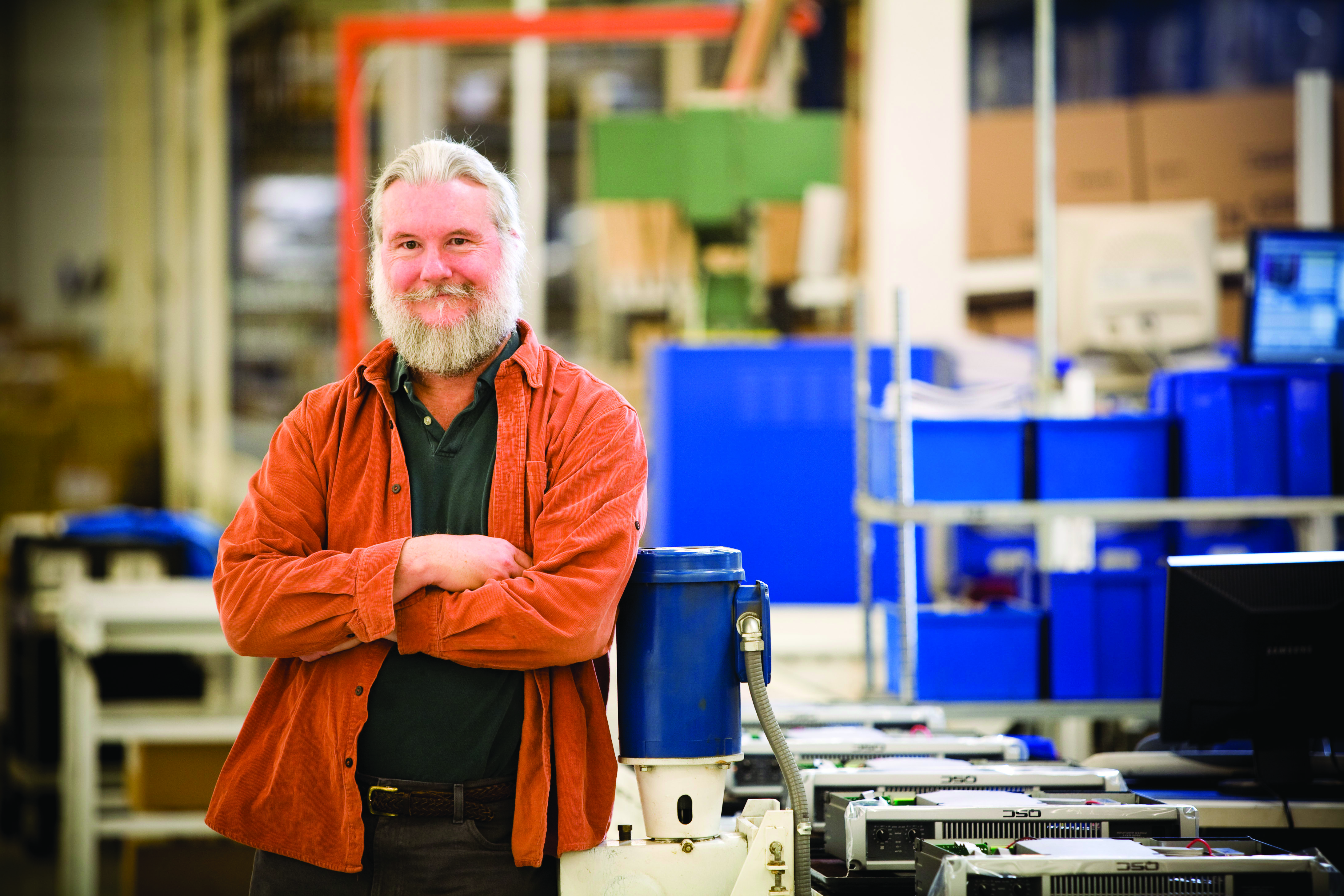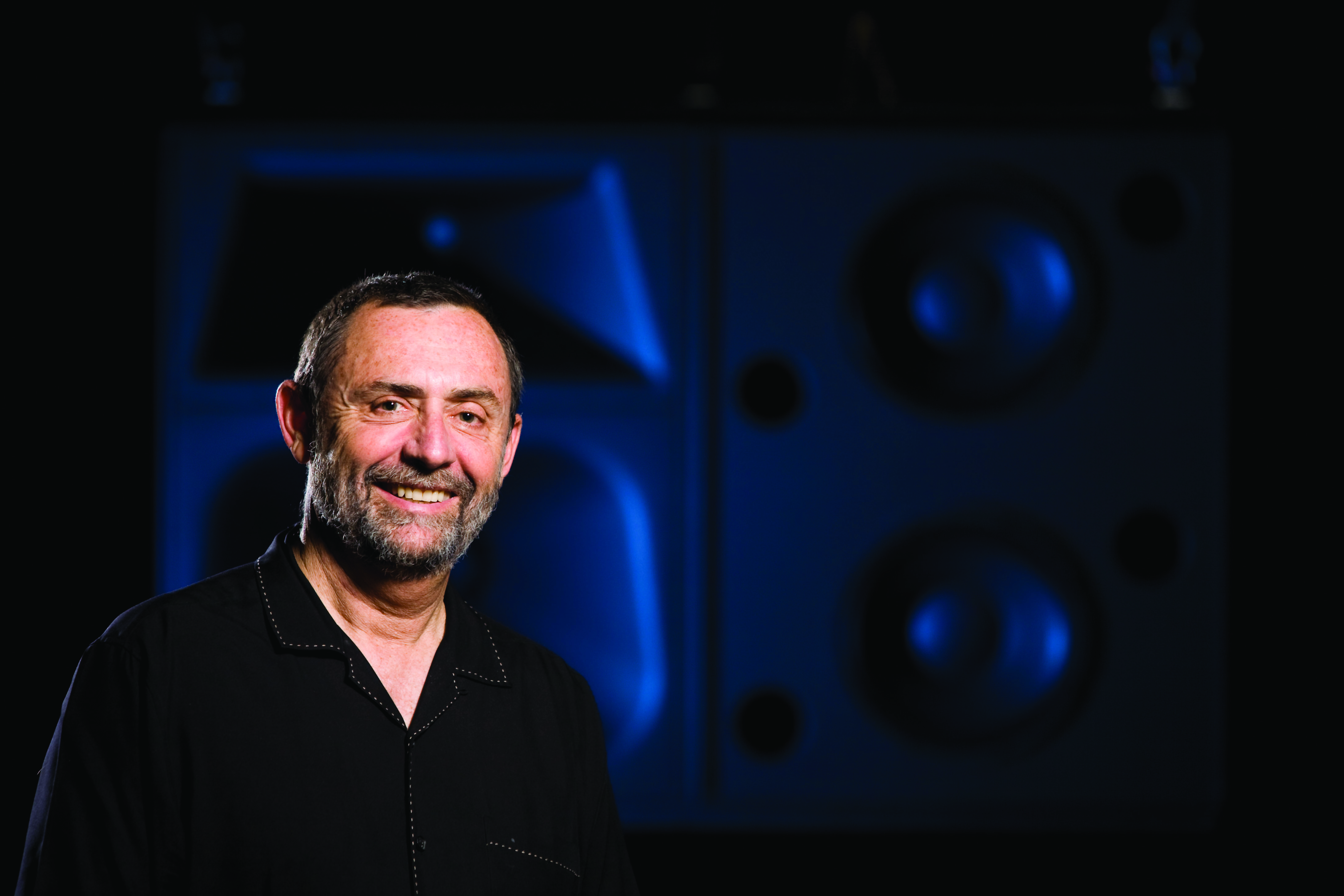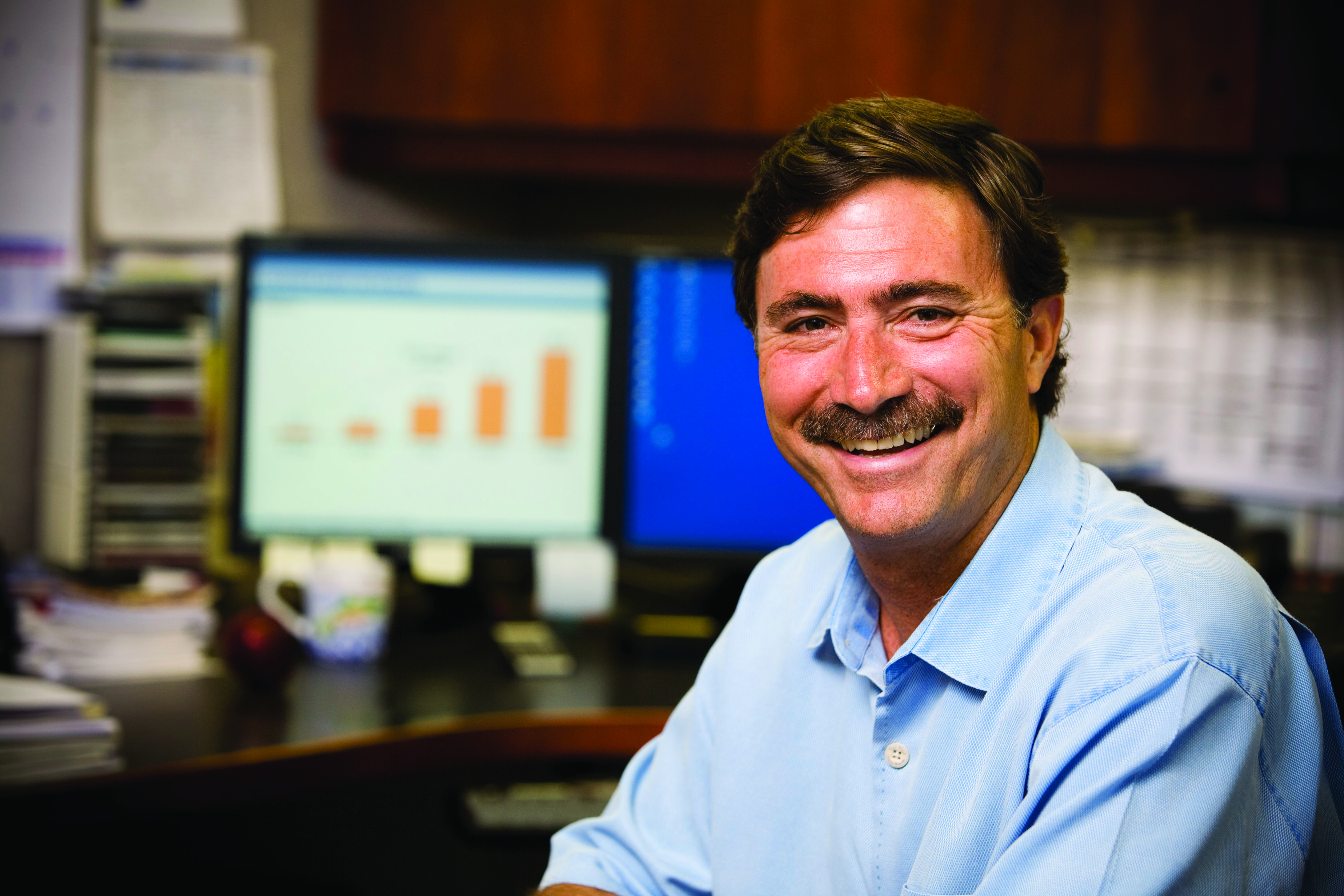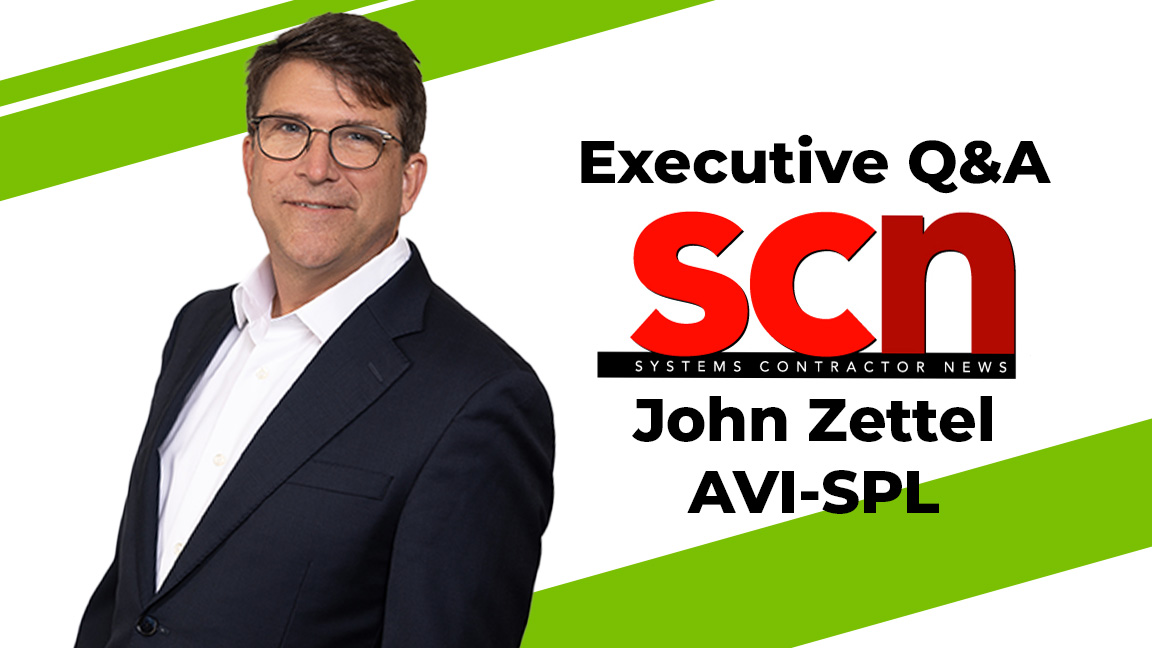50 Years of Embracing Change at QSC

If anyone tries to argue that the old proverb, “If at first you don’t succeed, try, try again” is nothing but a pithy saying, point them to the example of QSC. Launched as Quilter Sound Things in a garage in Costa Mesa, CA in 1968, founder and chairman of the board Pat Quilter was simply trying to provide good solutions for local musicians—a far cry from the QSC we know today, 50 years later.
“When we started this company, we planned to take over the world with high-powered guitar amplifiers,” said Quilter, who built upon an interest in electronics when he launched the business with Barry Andrews, founder and board member. “Unfortunately, we were not the only company who vied for that position. A number of others were very successful early on, and it was depressing for us that we were not one of those companies. But not having early success was one of the keys to our ultimate success. It forced us to really learn how to run the business.”

While the team reworked their knowledge and expertise to develop power amplifiers, that focus on business operations was the real key to the company’s longevity, says Barry Andrews, who took an interest in the management side of the business.
“We all realized we had to become excellent operationally, excellent in our product development efforts, our sales and marketing, and we had to become excellent manufacturers,” he said. “And, at the beginning, we struggled with most of these things!”

John Andrews, Barry’s brother, the third founder and board member, joined QSC when he was still in high school. He agrees that the initial failure—and those smaller ones that, as in any business, inevitably followed—is why the industry is recognizing QSC during its golden anniversary year, including honoring its founders with the AVIXA 2018 Adele de Berri Award.
“We have a long history of learning from failures and successes, and have become stronger as a result,” John Andrews said. “If we’ve ever lacked the skills or capabilities to do something that we deemed critical to our success, we either learned how to overcome the deficiency, or we partnered with people who had the skills we needed.”
Technology Plus Time
A daily selection of the top stories for AV integrators, resellers and consultants. Sign up below.
While QSC’s success with power amplification technology may be somewhat overshadowed now by its broader developments in loudspeakers, DSPs, and more, it’s still what Quilter credits as the company’s legacy.
“Advancing that technology has left lasting impacts on the industry,” he said. “We really pushed Class-D switching power supply amplification technology, and established a new benchmark for overall quality in design and construction. We focused on solving the major problems in electronics all while delivering a clean, technically accurate output signal.”
On the loudspeaker side, Barry Andrews points to the K Series as another turning point for QSC. Still, while noting a “perfect balance of amplification, complimenting drivers, and on-board processing,” he says that its growth to the best-selling loudspeaker on the planet had a rocky start similar to that of the company. Strategically avoiding the loudspeaker segment for decades, they decided to listen to customer feedback and developed the K Series.
“We went from nowhere to the number one brand almost overnight,” he said. “The business wouldn’t be the size it is today if we hadn’t made that decision.”
Its early embrace of networked digital audio systems is another defining moment on QSC’s timeline. After becoming the first licensee of CobraNet in 1996, the company developed digital audio signal processing and networking solutions that ultimately led to the current Q-SYS platform.
“We saw the potential nearly 20 years ago for a software-based system that incorporated not only audio, but also made video and control more accessible, easier to deploy, and based on an IT foundation,” John Andrews said. “Our team developed Q-SYS as a real-time operating system, which allowed us to be the first manufacturer to decouple AV software and AV hardware. Now Q-SYS can run on commercial server hardware from companies like Dell, allowing audio, video, and control processing to become an asset in the datacenter.”
True Customer Service
The three founders point to customers as playing an enormous role in QSC’s evolution, beyond helping bring a game-changing loudspeaker to market. Customers have been the primary focus since Quilter developed his first guitar amp, and the same understanding from 50 years ago—that the person who’s using the technology is the one you should be creating for—has driven their mission ever since.
“We have always tried to focus on long-term strategies that produce lasting value for our customers,” Quilter said, “and we brought that philosophy to both product design and management practices.”
Barry Andrews agrees, adding that if customers don’t trust a brand, it certainly wouldn’t last for five decades. “Staying close to our customers and building their trust has always been our number one priority,” he said. “It hasn’t been a magical formula—it’s been about customer relationships and good business value. Even though our products in the beginning weren’t reliable, our customers trusted us because we always made good in the end. That is the hallmark of this company, and what will continue to drive innovation.”
The customer’s trust is part of a focus that values consistency over a quick success, John Andrews explains. “It’s a story of determination over failure,” he said. “We dealt firsthand with musicians and developed the ability—really a passion—for taking care of our customer.”
Innovations In Employee Satisfaction
QSC has presented so many creative innovations over the years that it’s almost become a symbol for what the company is—both externally and internally.
“When you are a small guy competing against the big guys, you have to offer customers a different approach,” Barry Andrews said. “That’s not only the case with products, but on the operation side of business as well.”
As part of ensuring its customers are getting the best experience across the board, the company has put ample thought into creating a work environment that reflects that commitment.
“The culture of QSC is one the most important assets and a key reason for the success of the company,” John Andrews said. “It is centered on respect, passion, personal responsibility, and constant improvement.”
That starts with building the right team. “It took us some years to put together the management team that carried us to our current success,” said Barry Andrews. “We really invested deeply over a long period of time to build both the talent pool and the market understanding that are required to be a leader.”
“QSC has always looked for better ways of doing things so we can get results with lower costs and impact,” Quilter said. “One of the key things we learned as managers was to understand and support the different personal temperaments in an organization and provide roles for those temperaments.”
Changing To Grow
If they’re going to make it another 50 years, the team knows change is inevitable—and that’s okay.
“The ability to recognize the need for change and to embrace it has been an important lesson,” John Andrews said. “If we continue to embrace change, improve, and understand the importance of having very passionate and capable people driving the company forward, we will continue to be the powerhouse we are today.”
“QSC has the resources to develop increasingly sophisticated system solutions, and our goal is to continue fostering our reason-based culture that relies on facts and analysis to make sound decisions,” Quilter said, noting that development like that sometimes requires even bigger changes: “We understand that the people who start a company aren’t always the best people to take the company to the next, higher level. It feels good to be able to hand it off and watch the company continue to grow and offer our employees more opportunity.”
The changes they’ve seen at QSC in the past 50 years couldn’t have happened without that sort of confidence in their decision making. Whether it’s been making a change from guitar amps to power amps, changing their minds about making loudspeakers, or changing the approach to signal processing, they’ve stuck with their choices—despite how scary those decisions may have seemed sometimes.
“There were a number of times we could have given up because of the potentially depressing circumstances and daunting road ahead,” John Andrews said. “We never lost confidence in our ability to become successful.”
As challenging as those moments may have been, this has always been better than the “alternative,” Quilter concluded: “Don’t underestimate the ‘fear of getting a real job.’”
